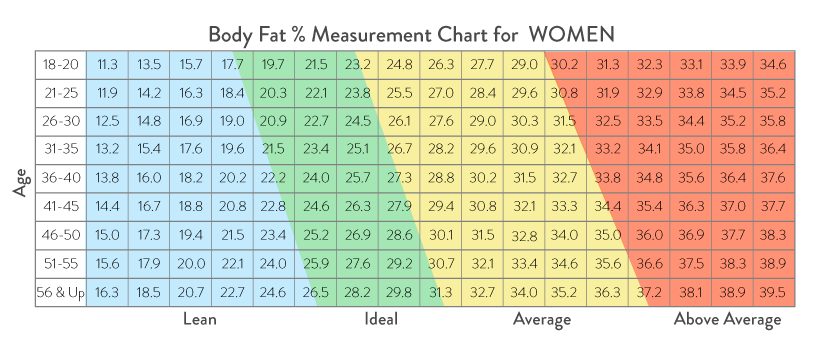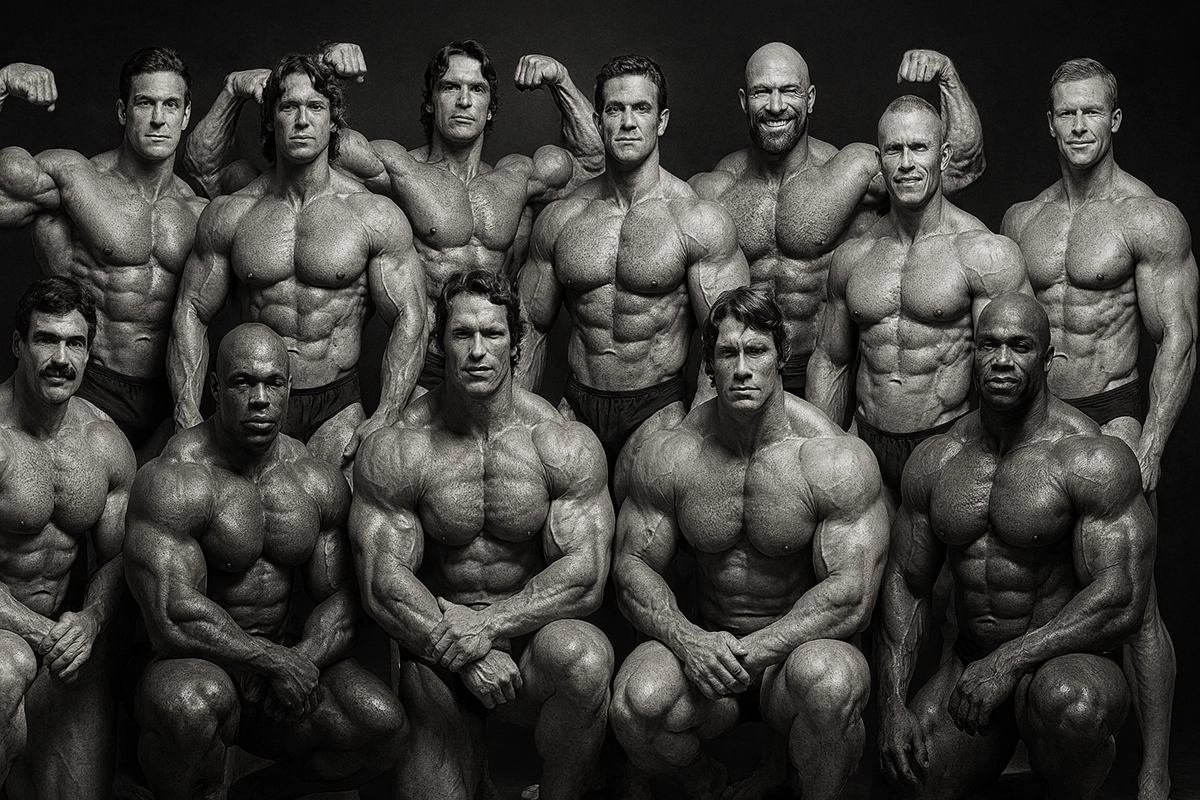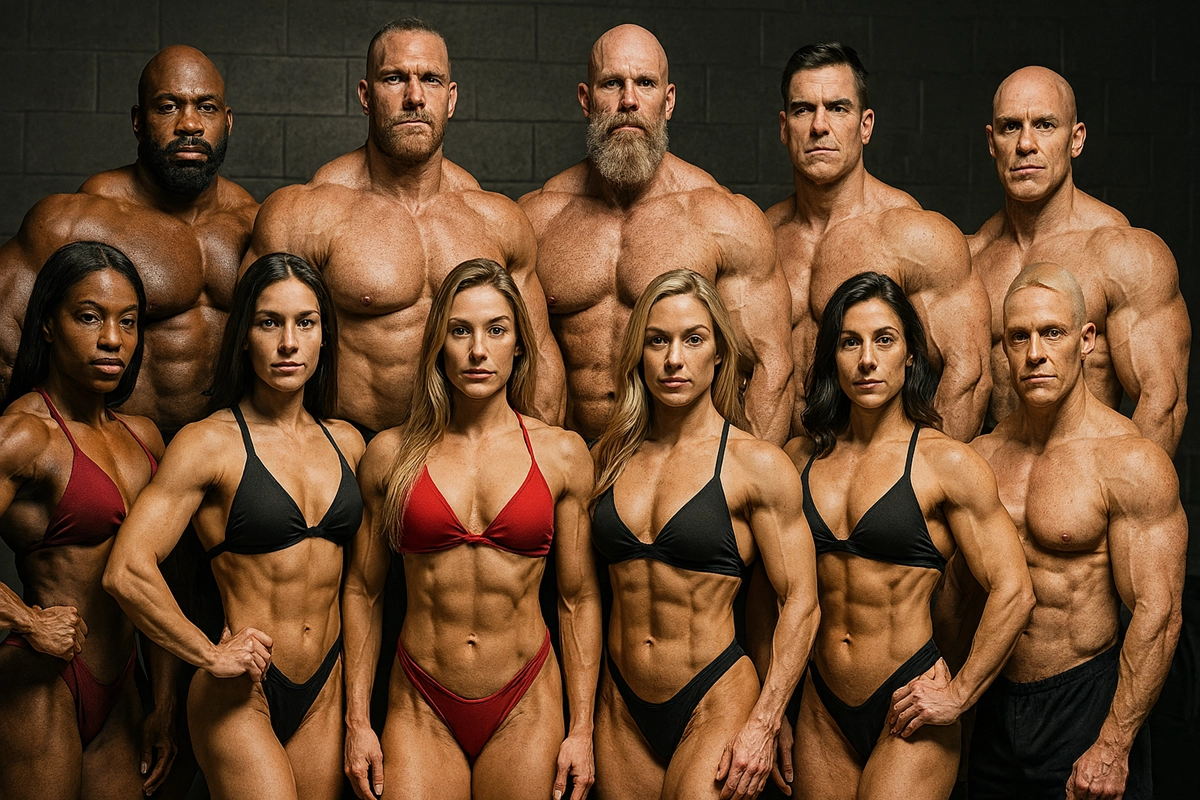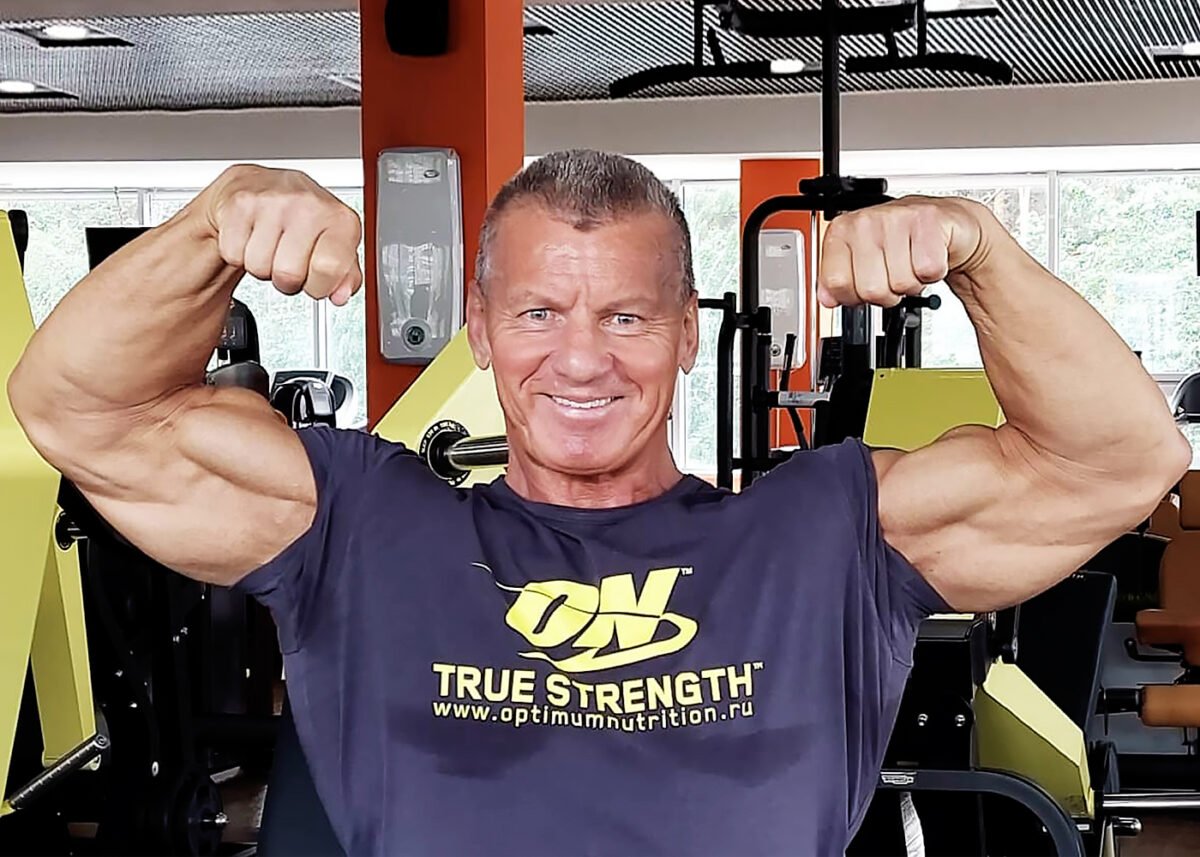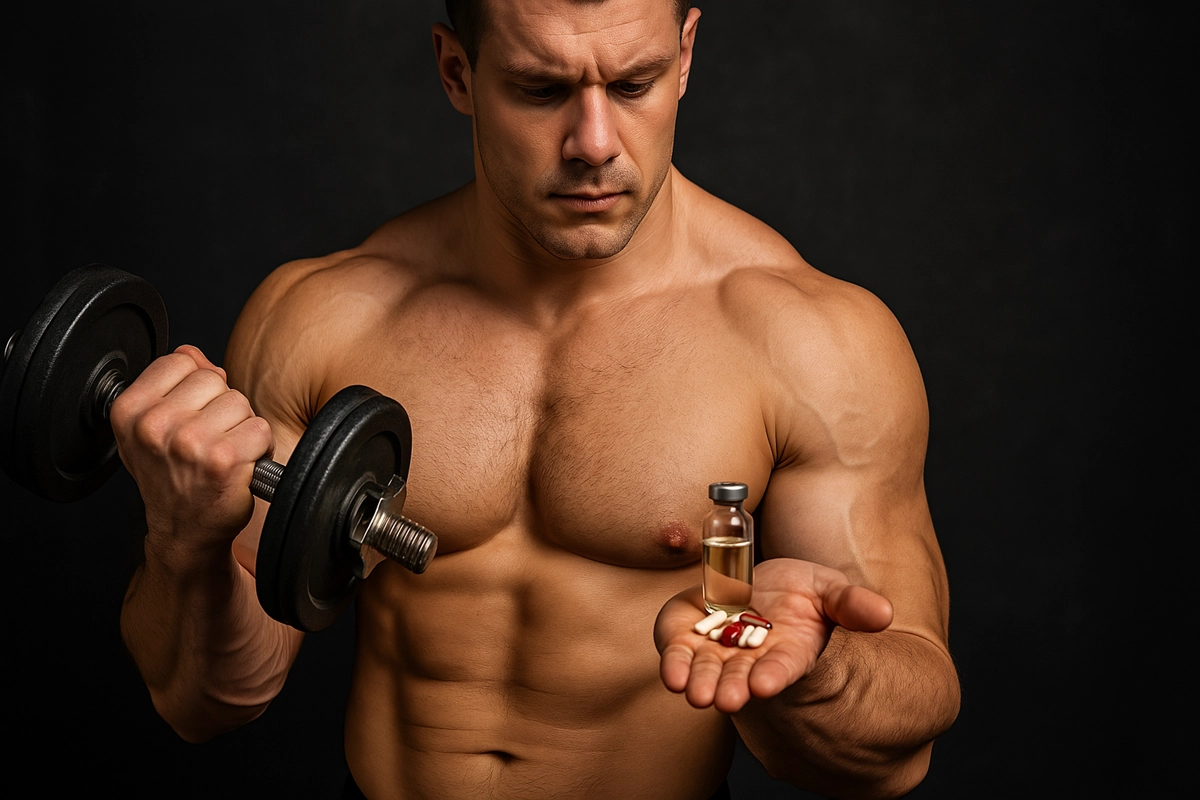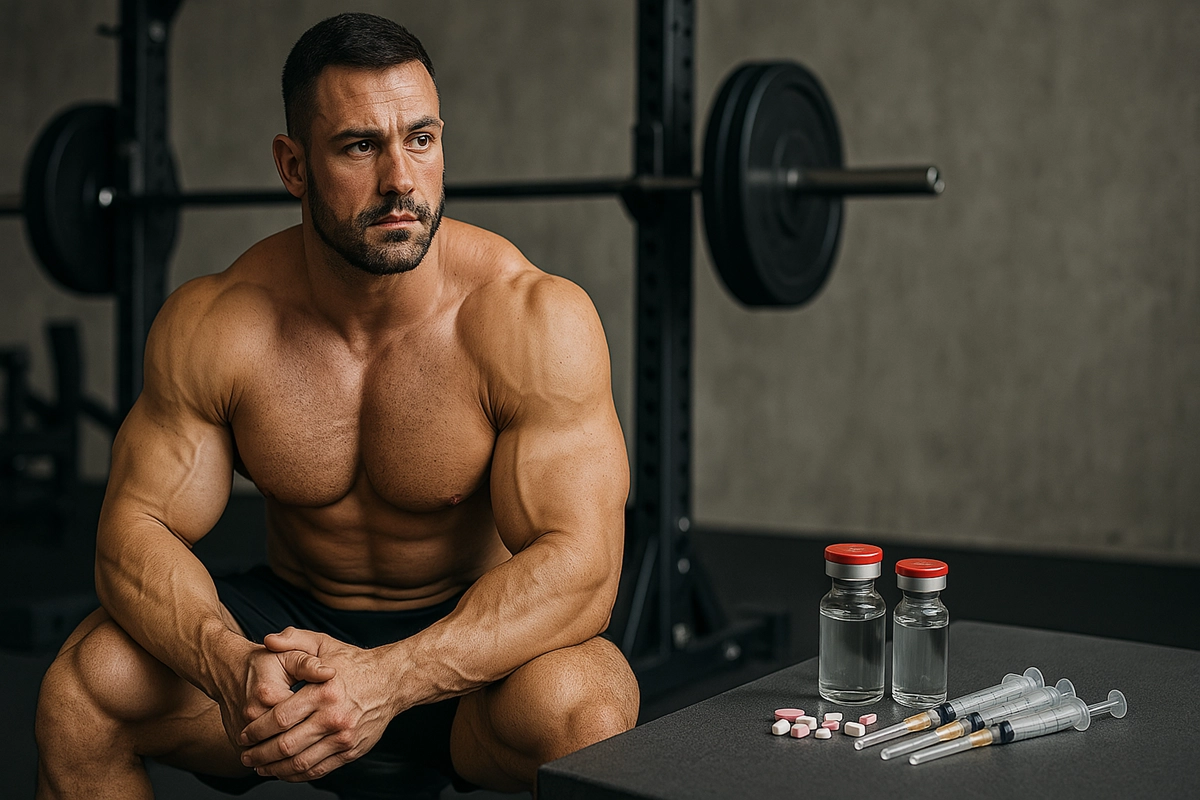You wouldn’t believe how many women obsess over their weight while completely ignoring something way more important – their muscle mass percentage!
See, when it comes to your body’s overall health, having the right amount of muscle isn’t just about looking toned.
Now, you might think that building muscle will make you look bulky, but that’s far from the truth. Let’s unpack what those percentages really mean for your health and why they’re essential at every age.
What Is Muscle Mass?
Muscle mass is the amount of muscle tissue in your body. Track muscle mass percentage to understand body composition beyond appearance.
Healthy muscle mass supports energy, recovery, and daily function. Muscle mass and body fat are separate metrics. Muscles act as the body’s power plant, driving strength and resilience.
See, your female muscle mass plays a significant role in how your body functions every single day.
Now, here’s something interesting: your healthy muscle mass percentage isn’t just about being above or below average for your gender and age.
Remember, muscle composition affects everything from your daily energy levels to how well you bounce back from illness or injury!
You might’ve a higher or lower muscle mass percentage regardless of your body fat levels – they’re two separate things.
Think of your muscles as your body’s power plant, constantly working to keep you going strong!
Average Muscle Mass for Women: Data by Age
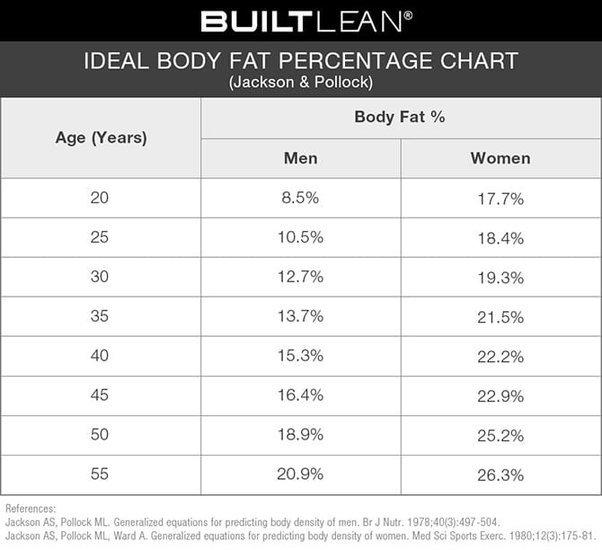
As you move through different stages of life, your muscle mass naturally changes – and knowing what’s typical can help you set realistic fitness goals!
Research reveals distinct patterns in average muscle mass among females across various age groups. If you’re between 18 and 39, you’ll typically have around 29-31% muscle mass, with some women reaching 33% or higher.
See how the numbers gradually shift? By the time you reach your 40s, the typical range is 28-30%, and after 50, it settles around 27-29%.
Now, don’t worry if you’re above 65 and seeing a rate of 25-27% – that’s completely normal! Remember, these muscle percentage ranges for females aren’t one-size-fits-all health metrics.
Your personal sweet spot depends on factors like height, ethnicity, and fitness level. Age variation is natural, so focus on maintaining a strength regimen that works for you.
| Age (years) | Muscle mass percentage |
| 18 to 35 | 31% to 33% |
| 36 to 55 | 29% to 31% |
| 56 to 75 | 27% to 30% |
| 76 to 85 | less than 26% |
Understanding Muscle Mass Percentages
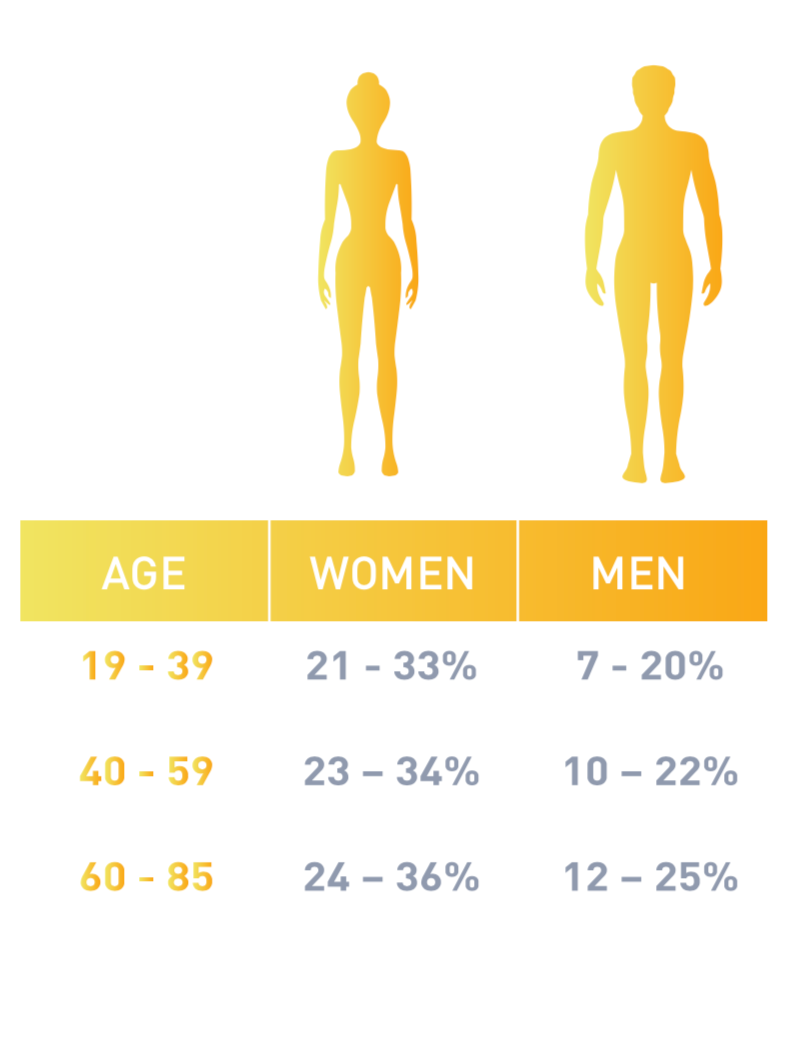
Let’s break down what those muscle mass percentages really mean! When you’re looking at muscle mass percentage in women, you’re actually measuring the amount of skeletal muscle in your body compared to everything else.
- Metabolic Engine: Muscle burns 4.5–7 calories per pound daily at rest.
- Strength And Function: The Muscle prevents falls, maintains independence, and supports activities.
- Bone Health: Resistance training helps build muscle and strengthen bones.
- Hormonal Health: Muscle helps regulate blood sugar and hormones.
Think of your muscles as your body’s metabolic engine – they’re not just for show!
See, healthy muscle mass percentage for women isn’t just about looking toned. Your body composition affects health in amazing ways!
Your muscles help regulate blood sugar, support bone strength, and maintain hormonal health. They’re like your body’s personal power plant, burning 4.5-7 calories per pound even when you’re binge-watching your favorite show.
What Happens If You Have Low Muscle Mass?
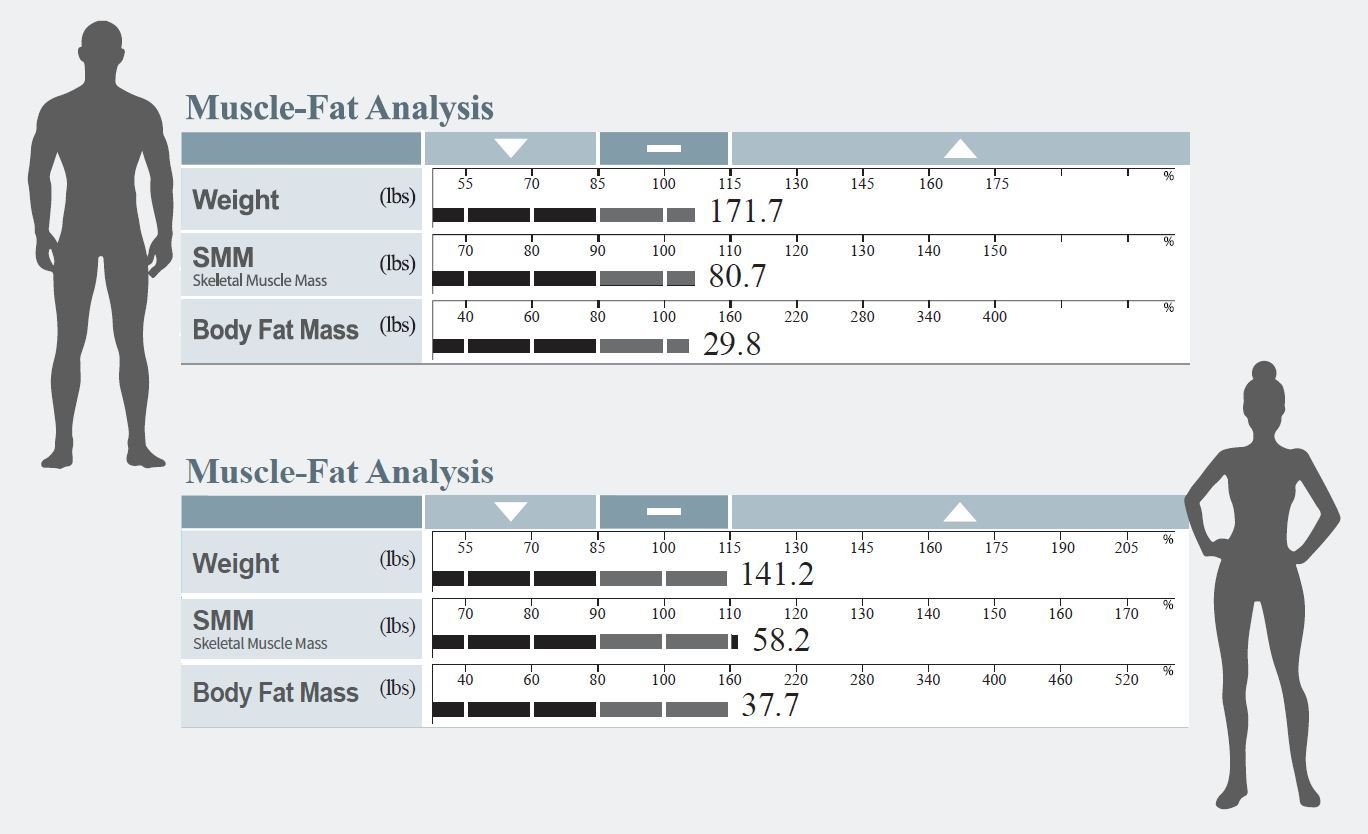
When your body lacks adequate muscle mass, it’s like trying to run a car with a tiny engine – everything becomes more challenging.
Low muscle mass, also known as muscle atrophy, can seriously impact your daily life and make essential tasks feel exhausting.
See, muscle weakness isn’t just about struggling to lift weights at the gym. Your body requires healthy muscle tissue for fundamental functions, including maintaining posture, regulating body temperature, and supporting your immune system.
While some muscle loss is a natural consequence of aging, rapid decline often signifies underlying health issues.
Watch out for red flags, such as unexplained weight loss, persistent fatigue, or difficulty with simple tasks.
Common culprits include malnutrition, sedentary lifestyle, chronic illness, or hormone imbalances. Remember, identifying the root cause is vital for getting back on track!
- Aging: Aging can replace muscle mass with fat.
- Sedentary Lifestyle: Inactivity leads to muscle loss; regular use keeps them strong.
- Exercise: Training some muscles may cause breakdown in unused ones (e.g., marathon running).
- Cancer: Advanced cancers burn muscle for fuel (“cancer wasting”), causing loss of muscle, fat, and weight; this accounts for 20–30% of cancer deaths.
- Chronic Disease: Lung, heart, or kidney disease can cause muscle loss.
- Medication Side Effects: Certain drugs can cause muscle loss.
- Endocrine Disease: Hormone imbalances (e.g., diabetes, hyperthyroidism) cause weight/muscle loss.
- Autoimmune Disease: The Immune system attacks tissues, raising energy use and causing weight loss.
- Infectious Disease: Chronic infections break down tissues for energy, leading to muscle loss.
- Malabsorption: Digestive diseases can reduce nutrient absorption, leading to muscle loss.
How to Calculate Muscle Mass?
While a DEXA scan is considered the “gold standard” for measuring muscle mass, it’s not exactly something you’ll find at your local gym!
Now, you’ll more commonly encounter bioimpedance analysis (BIA) devices – those scales that send a tiny electrical current through your body to estimate muscle mass.
1. DEXA Scan
To accurately measure your muscle mass percentage, nothing beats the precision of a DEXA scan! This incredible technology utilizes dual-energy X-rays to map your entire body composition, revealing exactly where your muscle, fat, and bone are located.
Want to know what makes DEXA the gold standard? It’s incredibly accurate, matching up with expensive MRI results but at a fraction of the cost. You’ll receive a detailed regional analysis that shows precisely where you’re building muscle, from your biceps to your calves.
The best part? The radiation exposure is super low, about the same as eating a few bananas! Now you can track your changes in skeletal muscle mass over time without worry.
See, getting professional-grade body composition measurements doesn’t have to be complicated or scary!
2. (BIA) Bioimpedance Analysis
Since discovering body composition isn’t exactly a walk in the park, you’ll find bioimpedance analysis (BIA) in tons of modern smart scales and gym equipment!
While it’s incredibly convenient, you’ll want to take those muscle mass percentage readings for females with a grain of salt.
See, BIA comes with some notable limitations. Studies show that it tends to overestimate muscle mass, especially in leaner individuals.
Now, here’s the tricky part – your results can swing wildly based on several factors. Remember that your hydration levels, recent meals, workouts, and even room temperature can affect the readings!
Even your menstrual cycle can throw off the numbers.
Does this mean BIA is useless? Not at all! Just be consistent with when and how you measure, and use it to track trends rather than absolute values.
To Wrap It All Up
Remember, your muscle mass naturally declines with age, dropping from around 30% in your 20s and 30s to just 26% by age 65. But don’t worry, you’ve got this.
By staying active and incorporating strength training into your routine, you can maintain healthy levels of muscle mass.
Here’s a striking fact: just two strength training sessions per week can help you preserve up to 95% of your muscle mass as you age. So why not start today?
FAQs
What Is The Ideal Muscle Mass For Women?
The ideal muscle mass for women is 30–40% of total body weight, depending on age and fitness level. Athletes may maintain higher percentages around 35–45%, while healthy averages for non-athletes range closer to 30–35%. Maintaining this range supports strength, metabolism, and body composition.
How Can Women Measure Muscle Mass?
Women can measure muscle mass using DEXA scans, bioelectrical impedance scales, or skinfold calipers. DEXA is the most accurate, while smart scales and impedance devices offer convenience for home tracking. Regular measurements help track progress in strength and fitness programs.
Why Is Muscle Mass Important For Women?
Muscle mass is important for women because it boosts metabolism, increases strength, and improves bone density. Higher muscle mass supports healthy aging, reduces risk of osteoporosis, and helps manage body fat. It also enhances athletic performance and overall physical function.
Can Women Gain Muscle Without Getting Bulky?
Yes, women can gain muscle without getting bulky because female hormone levels limit large muscle growth. Training with moderate weights, high reps, and proper nutrition builds lean muscle and definition. A balanced program enhances tone and strength without excessive size.
What Factors Affect Muscle Mass Percentage in Women?
Muscle mass percentage in women is affected by age, genetics, training intensity, nutrition, and hormones. Younger women and those with consistent resistance training maintain higher levels. Poor diet, inactivity, and aging reduce muscle mass over time.
How to Measure Muscle Mass Percentage at Home?
Measure muscle mass percentage at home using smart body composition scales with bioelectrical impedance. These scales estimate lean mass by sending a harmless electrical current through the body. For more accuracy, combine measurements with tape measurements and strength tracking.
Best Body Composition Scales for Women?
The best body composition scales for women include the Withings Body+, RENPHO Bluetooth Smart Scale, and Tanita BC554 Ironman. These scales track muscle mass, fat percentage, and water weight with smartphone integration. They offer accurate home monitoring for fitness and health goals.

